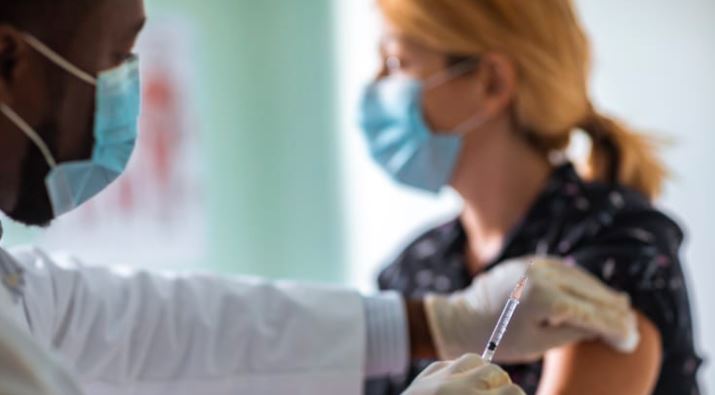Federal law allows employers to mandate COVID-19 vaccines for employees who’ve been infected with COVID-19 and those who haven’t, and the Biden administration’s vaccine-or-testing mandate won’t likely create an exception for those with “natural immunity,” legal experts say.
The Biden administration announced Sept. 9 it would issue an emergency temporary standard (ETS) mandating that employers with at least 100 employees require vaccinations or weekly testing to protect workers from COVID-19. In announcing that they would challenge the expected ETS, 24 attorneys general faulted the administration for not taking into account natural immunity.
“The Biden administration’s mandate is unlikely to distinguish between those who have had previous infections and those who have not, and employers should not do so either—and for good reason,” said Martha Boyd, an attorney with Baker Donelson in Nashville, Tenn.
Individual immunity levels after infection vary based on a variety of factors, including the severity of the previous infection. Plus, a recent U.S. Centers for Disease Control and Prevention (CDC) study released on Aug. 6 demonstrated that vaccination offers higher protection against COVID-19 than does previous infection.
Making exceptions for those with natural immunity also is risky because “it would be impossible for employers to be able to say with any accuracy which of their employees maintain sufficient protective antibodies from a prior infection to prevent them from getting or transmitting the disease,” Boyd said.
But employers should monitor state and local developments, cautioned Jo Bennett, an attorney with Schnader in Philadelphia. Equal Employment Opportunity Commission guidance and the Houston Methodist Hospital decision in favor of mandatory vaccinations did not address state and local law, she said.
CDC’s Stance
The CDC states that people should be vaccinated regardless of whether they have already had COVID-19.
“That is because it’s not certain how long someone is protected from getting sick again after recovering from COVID-19,” said Emily Harbison, an attorney with Reed Smith in Houston. So if an employer has a mandatory vaccine policy, it should require vaccines for all employees and not create an exception for those who have already had COVID-19, she said.
“According to the CDC, studies have shown that vaccination provides a strong boost in protection in people who have recovered from COVID-19,” Harbison noted. “It may be that if employees are challenging the policy and asking for an exception because they have previously had COVID, the company should provide information to educate employees and raise awareness about the benefits of vaccination even to those who have already had COVID.”
Mandate’s Purpose
For employers in safety-sensitive industries, such as hospitals, a vaccine mandate can serve to communicate the employer’s mission, Bennett noted.
“As the judge in the recent Houston Methodist Hospital case succinctly stated, the hospital is in the business of saving lives without infecting patients with the virus,” she said. “An employer that mandates vaccines, regardless of whether it is in a safety-sensitive industry, may intend to demonstrate that it cares for all of its employees and wants to ensure a safe workplace.”
On Sept. 9, Biden also issued an executive order requiring vaccination of federal employees, federal contractors and health care workers in most settings that receive Medicare or Medicaid reimbursement.
Reasonable Accommodation Process
Objections based on a previous COVID-19 infection would have to be made through the reasonable accommodation request process, noted Andrew Maunz, an attorney with Jackson Lewis in Pittsburgh, and the employer should then follow its normal accommodation procedures to determine if the following applies:
- The employee has a disability under the Americans with Disabilities Act that conflicts with the employment policy.
- A reasonable accommodation can be provided without an undue hardship on the employer.
Difficulty Identifying Who Has Been Infected
In some cases, it would be difficult to know whether an employee had COVID-19, particularly if that person’s infection occurred before testing was available and was identified solely based on the presence of antibodies or self-reported symptoms, Boyd said. “Accordingly, we advise employers who require employees to be vaccinated not to distinguish between those who were previously infected and those who were not with regard to the vaccination protocol,” she said.
An employer that lets an employee bypass a vaccine mandate by claiming natural immunity from prior infection may be in the uncomfortable position of determining on a case-by-case basis whether the worker’s claim is true, Boyd said. “Employers would have difficulty verifying previous infection.”
